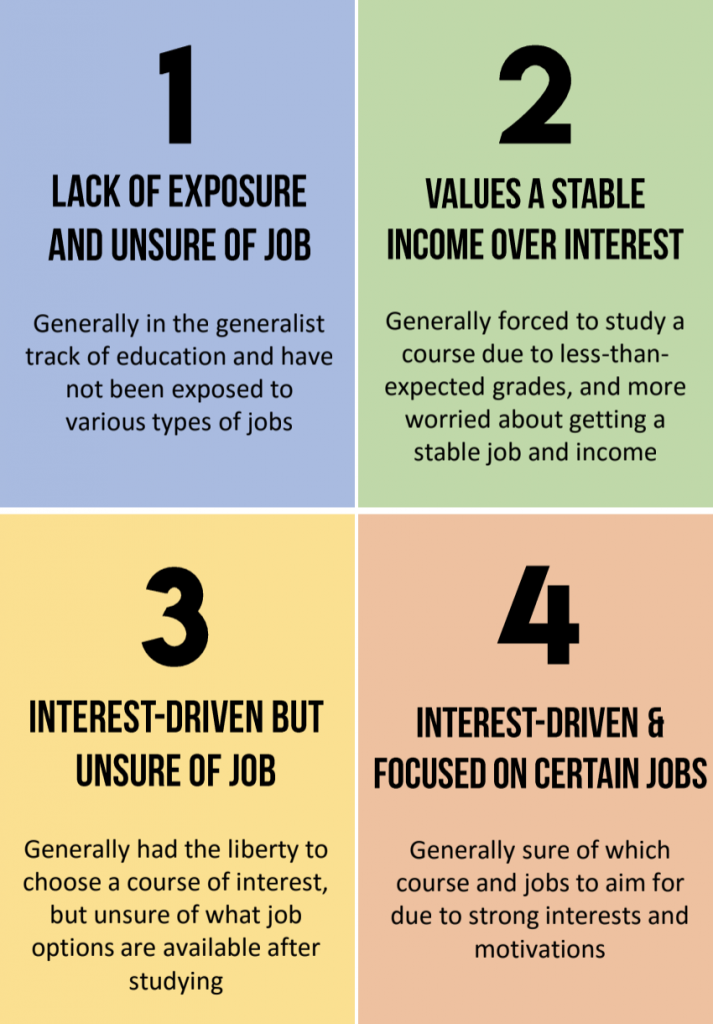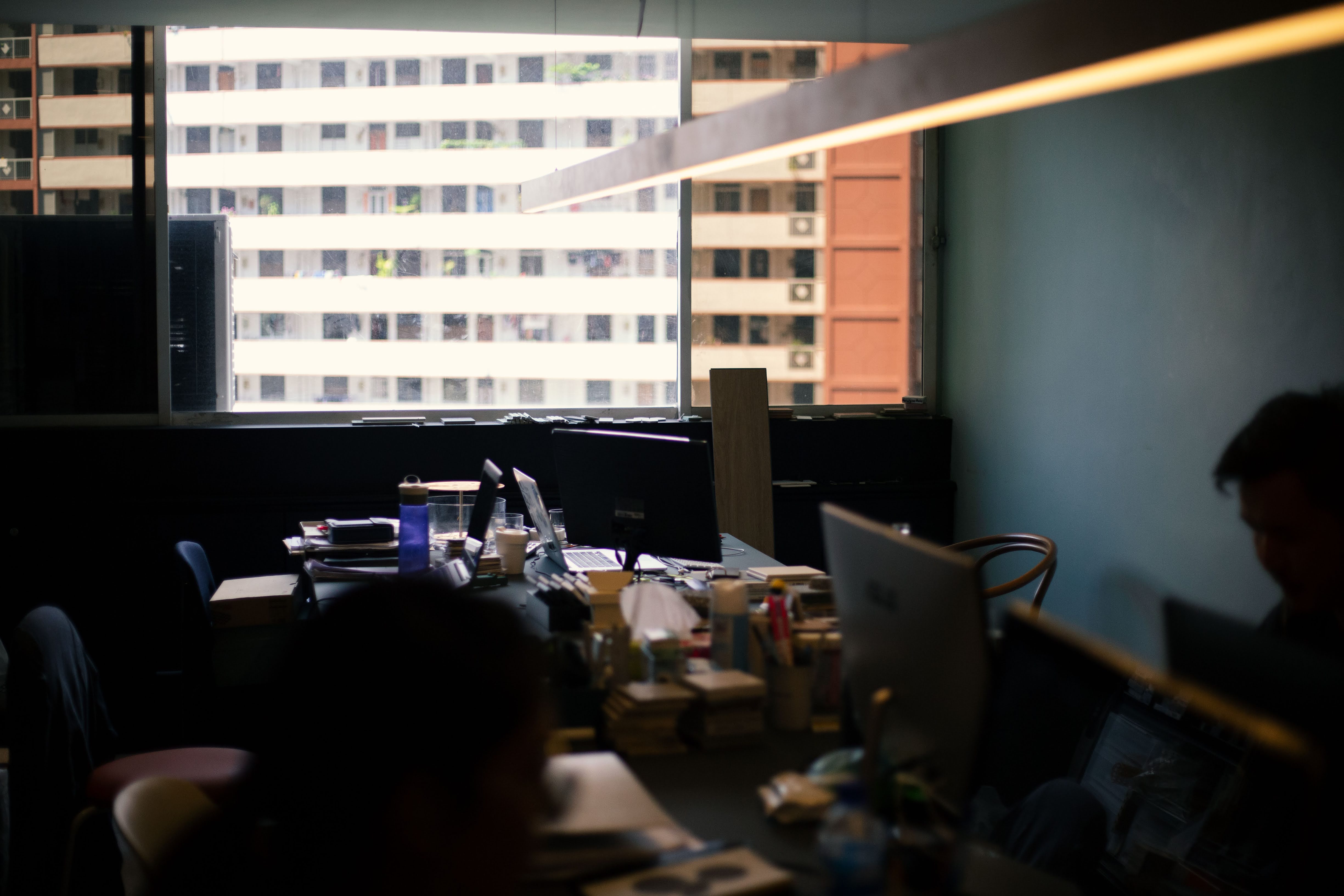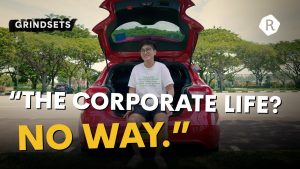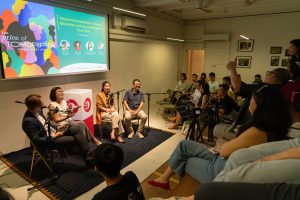2020 has not been not a great year to be graduating. Compounding the traditional difficulties of entering the workforce, the disruption brought about by COVID-19 has made the search for meaningful work tougher. Therefore, we must do more to ensure the competitiveness and employability of young people.
These aphorisms have been discussed to no end—you’ve heard this all before. Instead of harping on these points, let us instead address three specific questions, namely: Why is it difficult for young people to make the transition from school to work? How exactly has the pandemic made things worse? And what can young people do to make the most of an ever more challenging situation?
The Challenges of Transitioning from School to Work
First, we must endeavour to understand the mindset of a student—and break from our homogenous understanding of the ‘Singaporean youth’ as a catch-all label. An apt starting point would be identifying four key uncertainties that students face, and the four ‘personas’ of students in Singapore. We uncovered these through surveys and interviews conducted with over 800 youths by Advisory, a fully youth-led nonprofit I co-founded in 2016, that is dedicated towards empowering young Singaporeans from all walks of life to make informed career and further education choices:


With finite resources also come difficult decisions pertaining to trade-offs. Curiously, we’ve found that students falling into the broad categories of personas two and four require less additional support than those of personas one and three. This is not meant as a normative judgment of a persona of student being ‘better’ or ‘worse’ than others—merely a factual observation that students who belong to personas two and four typically have strong existing opinions and plans related to bolstering income or pursuing passions respectively, and have been proactive in pursuing these plans. Of the students we interviewed, close to half were largely able to articulate the courses of study and occupations they hoped to pursue and why, and expressed less uncertainty about their future plans than their peers. Though communicating the realities of occupations of interest is important to ensure such students can make more informed choices, supporting students of personas one and three who lack exposure and are uncertain of their options and plans is more pressing of a need. While these personas should not be treated as a hard and fast metric by which to judge all students, it is a helpful framework to assist in our understanding of the different baselines upon which young people are approaching their career choices.
Second, how exactly has COVID-19 made things worse for graduating students? We start with anxiety—no one enjoys having their best laid plans disrupted. And for students of personas one and three, the anxiety is compounded onto their existing uncertainty about their futures. Of the nearly 2,000 students who applied to our virtual industry mentorship programme this year, many shared with us the anxiety they felt on having their internships, exchanges and job offers rescheduled or rescinded. The step beyond anxiety is trepidation. With hiring freezes at many top firms, the pathways that many students had set their sights on are no longer as viable as they once were, inciting a fear of the unknown brave new world. Confusion is the final step, with an overload of information on support schemes, resources, and steps to be taken. These three emotions dominate the psyche of our students, and it is important that any measures we take alleviate all or some of these concerns. To help soothe some of these anxieties, and to offer vital exposure to graduating youths and those with career building aspirations, national intiatives such as the SGUnited Traineeships and Skills Programme have been welcomed across the board—serving as an invaluable aid to tide through the immediate future. However, more can still be done to ensure that our youth are given every opportunity in these lean circumstances to reach their dreamt-of shore.
Making the Most of an Impossible Situation
In a recent interview, I was asked why our youth should be optimistic about the future of the economy and the jobs market. I hesitated, and eventually replied, “there aren’t any.” We should not pretend that the future is rosier than it is—and it should come as no surprise that in a recent National Youth Council-Milieu poll of 1,500 youth, 82% expressed concern with how COVID-19 would affect their career and employment prospects.
Yet, in an impossible situation, there is opportunity to be had in crises. For our youths, now is the best time to try working for a start-up or an SME. Without the trade-off of lost income, there is less risk of working in smaller companies, which can be the most fertile training ground for a fresh graduate. With work-from-home arrangements dominating the economy, for the first time, many of the world’s top educational institutions are offering upskilling and reskilling opportunities online—creating unprecedented access to some of the best materials available. Most importantly, our paths in life are not linear. Taking a pay cut now, or a traineeship instead of a full-time job, is not indicative of where we can go in life.
2020 is not a great year to be graduating. But in spite of the added difficulties, we must make the best of the cards we’ve been dealt. While the outlook for the future remains uncertain, our youth are not a helpless lot to be pitied. It heartens me that of the youth we’ve worked with, many have adapted courageously—I’ve seen many trying their hand at new fields like working in academia or entrepreneurship, or returning to school and pursuing skills upgrading independently. A recent graduate of the National University of Singapore that I had the privilege of interacting with embodies this spirit for me, as he opted to take on multiple part-time and temporary contract positions simultaneously to help with his family’s difficult financial position. I have every confidence that our generation can and will emerge stronger—and this storm will not break the sails of our youth.






